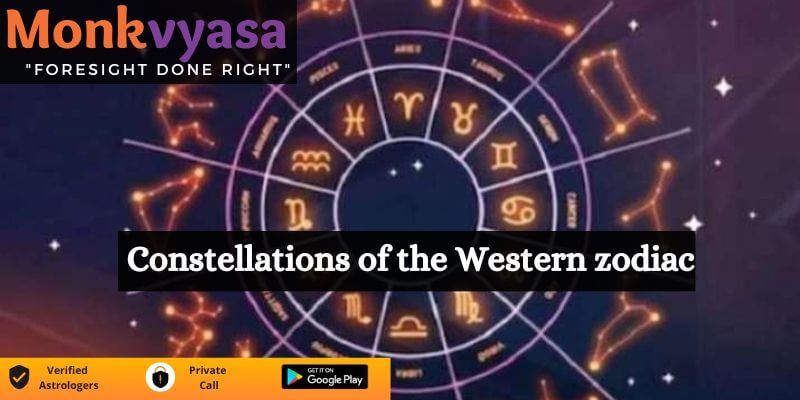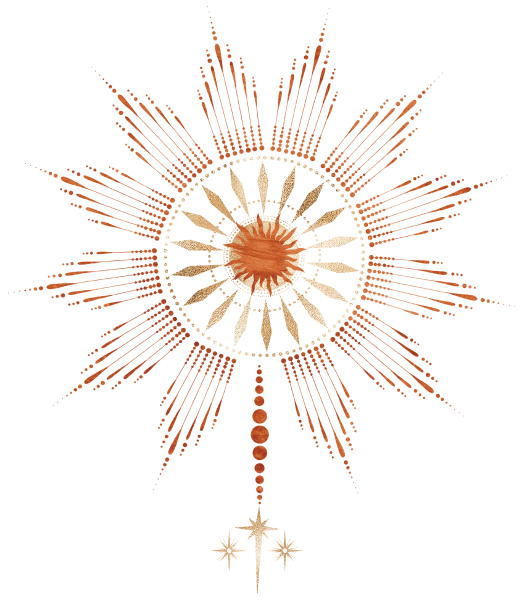

In the field of astrology, zodiac signs get a lot of attention—after all, all you need to know to read your daily horoscope is your sun sign. However, the world of astrology is vast, brilliant, and beautiful, and if you want to understand what the stars are trying to say, you must first understand what planets in astrology imply. Planets are well-known in the astronomy world; after all, astrology is all about understanding the movement of planets and other celestial bodies around the sky (and zodiac). However, knowing the planets will help you comprehend things like your Sun and Moon signs, and you’ll be more informed the next time someone complains about Mercury going retrograde or how Venus affects their love life.
You’re undoubtedly already aware of the planets of our small solar system (thank you, elementary school science teachers everywhere), but take a seat back at your desk because planets in astrology are defined a little differently than they were in school. To begin with, the Sun and Moon are both regarded as planets in astrology and are referred to as the “luminaries.” Of course, we know these aren’t planets in the traditional sense — the Sun is a star, and the Moon is, well, a moon — but in astrology, they are extremely important celestial bodies. Pluto is also still a planet in astrology. While astronomers downgraded Pluto to a small dwarf planet a few years ago, it’s still a full-fledged planet in astrology — and just as strong. Because we live on it, and because astrology adopts an Earth-centric view of the cosmos, we’ll scratch the Earth from the list of planets in astrology. In total, there are ten main planets. Each of the planets in astrology represents a particular set of attributes and characteristics, and each rules over a different aspect of our lives, each with its own distinct vibes and instructions. The planets might be thought of as characters, each with its own aims, hobbies, and occupations. Everyone’s astrological birth chart has the same ten primary planets, but they manifest themselves significantly differently depending on which zodiac sign they’re in.
As previously stated, the luminaries are the Sun and Moon, while the “inner planets” are Mercury, Venus, and Mars. Both the luminaries and the inner planets “travel” relatively swiftly from sign to sign (at least from our vantage point here on Earth), and hence have a greater influence on the day-to-day, shorter-term difficulties. Jupiter and Saturn follow, and they’re also referred to as the “social planets” or “transpersonal planets” since they oversee elements of our life that have to do with interpersonal relationships. Because they are in the middle, some people may classify these two giants as either inner or outer planets. The “outer planets,” which include Uranus, Neptune, and Pluto, have finally been reached. These kids progress more slowly through the zodiac chart, affecting greater, more grand-scheme aspects of your life and personality, as well as society at large. When a planet is described as “benefic,” it alludes to its reputation for bringing positive energy (Jupiter and Venus are known as benefits). Saturn and Mars, on the other hand, are known for possessing harder, more destructive energies (even though we love and need them To understand how the planets influence us, we must first understand where they are in the zodiac at any particular time.
Planets pass through many zodiac signs as they travel through the sky, and their energy manifests differently depending on which sign they’re in – similar to applying a filter to a photograph. You’ll have to study your birth chart to find out where your natal planets are located (you can draw yours up online if you have (You can also consult a professional astrologer for help). You’ll be able to look at how you express their energy, what parts of your life they appear in, and even examine the relationships between the planets, known as aspects), once you know where each of the planets lives in your chart (which includes 12 astrological houses and 12 zodiac signs that overlap with said houses). So it’s not the planets themselves that cause things to happen; it’s where they’re located and how they interact with other areas of your chart.
The Sun is the centre of our universe, and it also represents us in astrology. It’s the star that we circle and that gives us life; it’s what illuminates and colours the world around us. That’s why our sun signs play such an important role in our astrology and identity! According to astrologer Lisa Stardust, “the Sun represents our ego, what we are compelled to achieve, our life force.” The Sun is thought to be the driving force behind who we are at our core, and people who can accept their sun sign are happier and more fulfilled. Our astrological charts have many impacts, but the Sun is likely the most important to our persona and spirit.
The sensitive, empathic, maternal, and nostalgic mother figure of the zodiac is the soft, emotion-driven moon. “The Moon represents our deepest emotions, the elements of ourselves that we are unable to articulate,” Stardust explains. “It also symbolizes our maternal side, our mother, our memories, and even our favorite cuisines.” The Moon is in charge of our shadowy, more vulnerable aspects—the bits we don’t show people unless we feel comfortable and safe with them—as well as the things we need to feel safe, comfortable, and emotionally secure.
This planet is arguably most known for its infamous retrograde periods, but when it’s not turning your life upside down, this quick-witted maestro of communication, timing, and intellect is very great. According to astrologer Caitlin McGarry, Mercury has an impact on how we communicate, exchange information, and travel. Mercury is considered the gods’ messenger, so it’s no surprise that It is no surprise that communication, knowledge sharing, and travel are among its specialties. This planet reveals a great deal about our communication styles as well as how we digest information and manage our time.
Venus is the goddess of all things flowery, seductive, and heart-flutteringly delicious. Venus, named after the goddess of love, enjoys loving and being absorbed in the world’s aestheticism and beauty. Venus is also related to money, particularly the money we spend on things that offer us pleasure and delight. ”Venus is the lesser benefic,” Stardust explains, “and denotes love affairs, romance, luxury, exquisite wines, and rich cuisine.” “Venus also denotes money and self-esteem.” Venus is the planet’s equivalent of Valentine’s Day—imagine a romantic evening filled with chocolates, wine, red rose petals, and a beautifully perfumed bubble bath. It’s all about how you love, how you value things, and how you enjoy (and overindulge in) sensual pleasure and luxury.
“Wild and ferocious” Mars is tenacious, driven, and brimming with untamed, animalistic vigor. Mars, according to McGarry, “represents how we battle and establish ourselves.” Mars is also linked to our libidos and sexual energies, and it shows us how we pursue our goals. With its red-hot intensity and passion, the so-called Red Planet undoubtedly lives up to its name.
You may have heard, “Men are from Mars, women are from Venus.” Well, we all have a wonderful mix of both, so while Venus is in charge of hot romance, Mars is in charge of our more animalistic sexual drive and needs. Mars represents primitive, physical instinct, whereas Venus represents butterflies in our stomachs and emotion.
Jupiter is the solar system’s largest planet, and it also carries the most luck, positivity, and optimism of the bunch, bringing growth, opportunity, and good feelings along with its vast presence. “Jupiter, the larger benefit,” Stardust explains, “represents luck, growth, travel, “Philosophy, education, teaching, and expansion.” Through education, life experiences, and spirituality, Jupiter also aids us in broadening our horizons and expanding our thoughts. This is the planet that motivates us to pursue our ambitions, no matter how lofty they may be.
Saturn is our cosmic father figure if the Moon is our cosmic mother. Think of this planet as a strict, old-fashioned parent—the energy might be a bit of a downer at times, and it can certainly feel restricted and tough, but it’s ultimately there to help you grow and learn to be more responsible. ”The bigger malefic, Saturn, represents boundaries, limits, restraints, and the father bond,” Stardust explains. Saturn is perhaps best known for the infamous Saturn return, which occurs in every one in their late twenties (cue total existential breakdown). Saturn is all about tough love, hard effort, and conquering obstacles—but remember, it’s only being demanding on us because it wants us to grow into the most mature and wise version of ourselves possible.
Uranus is all about upsetting the status quo, rejecting tradition, and challenging the existing quo, so expect the unusual. Uranus is progressive, forward-thinking, and hyper-creative, but it’s also prone to abrupt shifts and changes – you never know what’ll happen next or when with Uranus. “Uranus is known as the ‘Great Awakener,’ as it shakes up the planet on a worldwide scale through revolutions, technical advancements, and innovation,” Stardust explains. Uranus isn’t interested in tradition for the sake of nostalgia; instead, it strives to be original, fresh, and unique at all times. In fact, because of the way it strikes us with startling insights and inspirations, this planet is sometimes compared to a lightning bolt. Uranus is the planet with the most unpredictability, yet its innovative and one-of-a-kind energy is part of what keeps life exciting.
otherworldly and dreamy. Neptune is the most ethereal and magical of the planets. The implications of this planet are as profound as its colour, as it represents psychic perception, spiritual connection, dreams, and artistic expression. “Neptune represents dreams, illusions, and fantasy, “Stardust explains.” Because of its dreamy, inter-dimensional character, Neptune tends to disconnect from reality, so it also speaks to your feeling of escape and the things you might do to cope with reality’s harshness. However, if you can avoid succumbing to the planet’s escapist impulses, it can help you grasp your sensitivity, psychic abilities, and spiritual depth.
Scientists may have stripped Pluto of its planethood in 2006, which would be a terrible decision for a planet named after the underworld’s ruler. Pluto, on the other hand, is a planet in astrology, and a very intense and sometimes dark one at that. “The energy of transformation is embodied by Pluto,” McGarry argues.
Think about the energy of light and dark, passing and rebirth, day to night, and ends into beginnings as you think of transformation. Pluto regulates anything that is subterranean or buried beneath the surface, as well as the extremes of any spectrum. Pluto’s influence is often felt on a societal level rather than on a personal level because it is the furthest planet from Earth.
Talk to India's famous
Astrologers
 Call Now !
Call Now !
Facing Problems in love life ! Call Now
 Call Now !
Call Now !

See the future through Mundane Astrology: Mundane astrology is the type of astrology used to predict world affairs and events.
 Read more
Read more 

Sign up to our exclusive astrology newsletter and receive daily updates and powerful reflections directly to your inbox. Fill in your astrology preferences to receive daily readings which have been tailored for you.